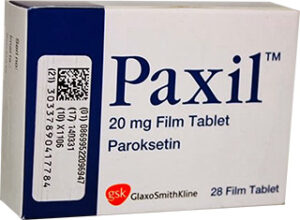Paxil is a prescription medication that belongs to a class of drugs known as selective serotonin reuptake inhibitors (SSRIs). It is primarily used to treat major depressive disorder, obsessive-compulsive disorder, panic disorder, social anxiety disorder, generalized anxiety disorder, and post-traumatic stress disorder.
Paxil works by increasing the amount of serotonin, a natural substance in the brain that helps maintain mental balance. By restoring the balance of serotonin, Paxil helps to improve mood, reduce anxiety, and alleviate other symptoms associated with the aforementioned conditions.
What to Avoid When Taking Paxil
Before taking Paxil, it is important to inform your healthcare provider about any existing medical conditions or allergies you may have, as well as any medications or substances you are currently using. Paxil should be avoided in the following situations:
- Hypersensitivity: If you have a known hypersensitivity or allergy to Paxil or any of its components, including paroxetine hydrochloride, you should not take this medication.
- MAOIs: Paxil should not be taken within 14 days of using a monoamine oxidase inhibitor (MAOI) or if you are currently using an irreversible MAOI. Combining these medications can lead to a potentially life-threatening condition called serotonin syndrome.
- Pimozide: Simultaneous use of Paxil and pimozide, a medication used to treat Tourette’s disorder, is contraindicated due to the risk of serious heart problems.
- Thioridazine: Paxil should not be taken with thioridazine, a medication used to treat psychosis, as it may cause life-threatening heart rhythm disturbances.
Possible Side Effects
Paxil may cause certain side effects, although not everyone who takes the medication experiences them. It is important to be aware of potential side effects and consult with your healthcare provider if they become bothersome or persistent. Common side effects of Paxil may include:
- Nausea
- Dizziness
- Drowsiness
- Insomnia
- Weakness
- Sweating
- Weight changes
In some cases, Paxil may also cause more serious side effects that require immediate medical attention. These side effects can include:
- Suicidal thoughts or behavior
- Severe allergic reactions
- Manic episodes
- Seizures
- Unusual bleeding or bruising
Instructions for Paxil
Paxil should be taken exactly as prescribed by your healthcare provider. It is usually taken once daily with or without food. Swallow the tablets whole with a glass of water, without chewing or crushing them.
If you miss a dose, take the missed dose as soon as you remember. However, if it is close to the time for your next dose, skip the missed dose and continue with your regular dosing schedule. Do not double the dose to make up for a missed one.
In the case of an overdose, seek immediate medical attention. Overdosing on Paxil can lead to symptoms such as nausea, vomiting, tremors, rapid heartbeat, confusion, seizures, and coma.
Understanding Drug Interactions
Paxil may interact with other medications, potentially altering their effectiveness or increasing the risk of side effects. It is essential to inform your healthcare provider about all the medications you are currently taking, including prescription drugs, over-the-counter medications, and herbal supplements.
Some common medications that may interact with Paxil include:
| Medication | Type of Interaction |
|---|---|
| Monoamine oxidase inhibitors (MAOIs) | Serotonin syndrome risk |
| Nonsteroidal anti-inflammatory drugs (NSAIDs) | Bleeding risk |
| Antiplatelet drugs (e.g., aspirin, clopidogrel) | Bleeding risk |
| Warfarin | Bleeding risk |
This is not an exhaustive list, and other drugs may also interact with Paxil. It is important to consult with your healthcare provider or pharmacist for a comprehensive understanding of potential drug interactions.
FAQ
-
Can Paxil be used during pregnancy?
Paxil should only be used during pregnancy if the potential benefits outweigh the potential risks to the fetus. It is recommended to discuss the use of Paxil with a healthcare provider.
-
Can Paxil be safely used by breastfeeding mothers?
Paxil passes into breast milk and may have adverse effects on the nursing infant. It is important to consult with a healthcare provider before using Paxil while breastfeeding.
-
Can Paxil cause weight gain?
Weight gain is a common side effect of Paxil. Regular exercise and a balanced diet can help manage weight during treatment with this medication.
-
How long does it take for Paxil to start working?
The onset of action of Paxil varies from individual to individual. It may take several weeks for the medication to exert its full therapeutic effects. It is important to continue taking Paxil as directed by a healthcare provider.
-
Can Paxil be abruptly stopped?
Paxil should not be abruptly discontinued as it may lead to withdrawal symptoms. Gradual dose reduction under medical supervision is recommended when discontinuing Paxil.


Reviews
There are no reviews yet.